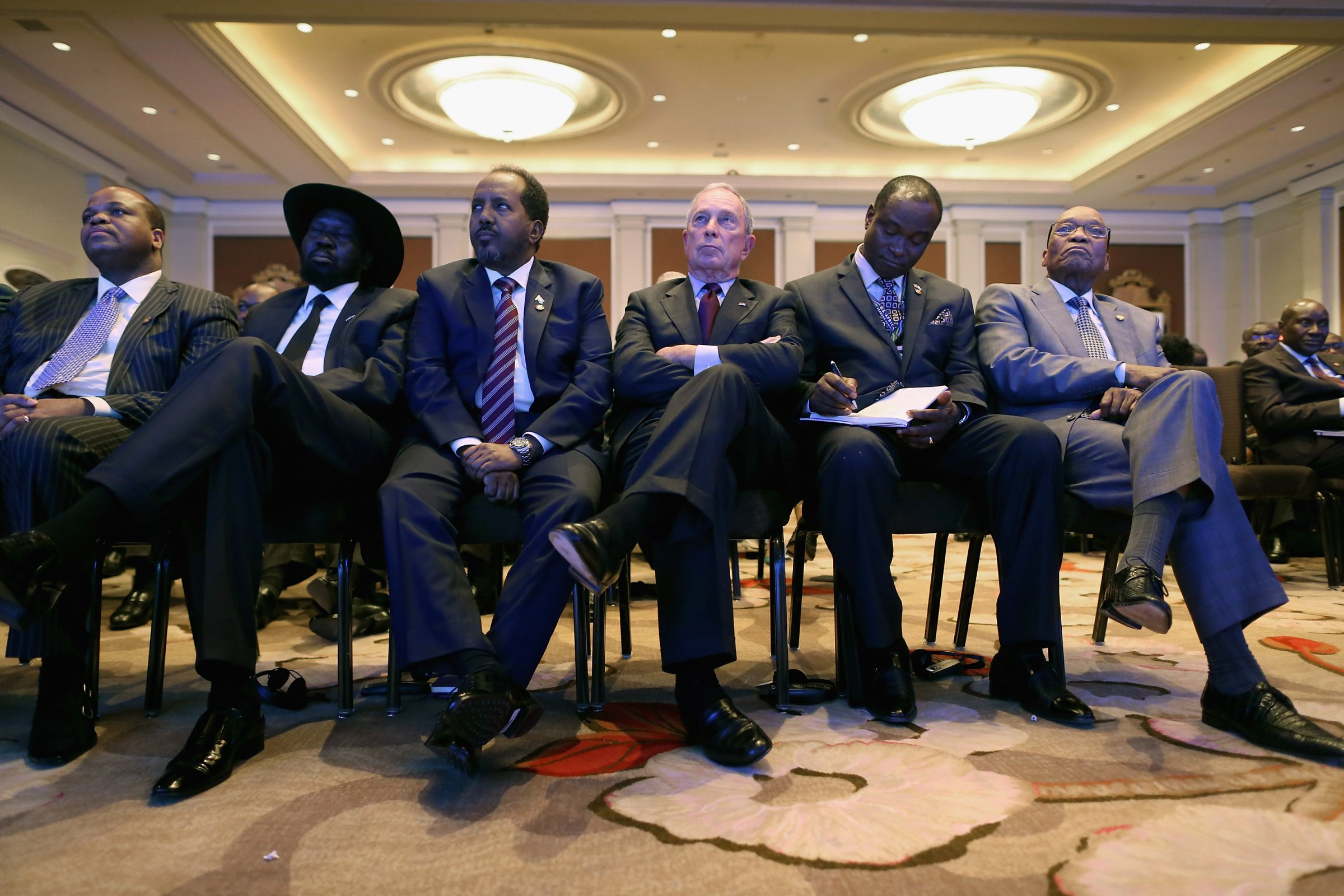
Activist groups called on African government officials to ban child marriage amid President Barack Obama’s first U.S.-Africa summit Tuesday.
“Child marriage is a complex human rights issue. It violates myriad women’s rights,” said Amanda Klasing, a women’s rights researcher for Human Rights Watch, during a discussion at United Nations Foundation on Tuesday hosted by the International Center for Research on Women.
The summit was one of many sideline events in Washington coinciding with the U.S.-Africa Summit, a three-day gathering that brings together President Barack Obama with nearly 50 heads of state from across the African continent.
Advocates for the rights of women and girls said issues facing women and girls must be addressed at the summit—particularly the marrying off of young girls. According to a recent UNICEF report, marriage at a young age can lead to women who are less educated, more susceptible to challenges during birth (due to lack of education) and less likely to receive medical care during pregnancy.
The greater issue, advocates said, is that marriage prevents young women from making decisions about their own bodies and lives.
An estimated 700 million women across the globe were once child brides, according to a recent UNICEF report, and about 14 million girls are married off before they reach the age of 18 every year. The International Center for Research on Women found Africa is home to 15 of the 20 countries where child marriage is extremely prevalent.
Without empowering women, says Behailu T. Weldeyohannes, a professor of law at Jimma University in Ethiopia, there is little chance the continent’s burgeoning economy will flourish.
“Africa right now is considered as a poor continent, but potentially it is not poor,” said Weldeyohannes. “If we address gender-based violence and if we provide education, if we provide health, if we provide other services to women—that by itself can increase the [Gross Domestic Product].”
Economic data backs this up. A 2011 World Bank study on the economic benefits of investing in girls found that if young Nigerian women and men had equal rates of economic activity—meaning active participation in the job market by both genders—annual GDP growth in the country would increase by 3.5%.
There are certainly precedents in intervention programs aimed at empowering young women that leaders could look to, should the activists’ words take root. A pilot study conducted by the Population Council and United Nations Population Fund in collaboration with stakeholders in Ethiopia was able to prevent girls age 10 to 14 from marrying young by working with communities, providing school supplies, and setting up mentor groups with girls.
But community-based work alone can’t solve the problem — Governments must put in place laws that promote equality and protect girls as they develop. Dorothy Aken’Ova, the executive director of the International Center for Reproductive Health and Sexual Rights in Nigeria, says Nigerian President Goodluck Jonathan, who is reportedly attending the Summit, has yet to prove he’s willing to take a real stance on protecting women, even after the kidnapping of over 200 girls from a school by the Islamist militant group Boko Haram drew the world’s attention and ire.
“I am concerned that [Jonathan] is not connecting with the groups that matter adequately on this situation,” Aken’Ova says. “If he could only pause for once and get some feminist analysis into the situation then he will not be far away from a lasting solution. But the question is, is he ready to engage with the feminist movement in the country?”
More Must-Reads from TIME
- Cybersecurity Experts Are Sounding the Alarm on DOGE
- Meet the 2025 Women of the Year
- The Harsh Truth About Disability Inclusion
- Why Do More Young Adults Have Cancer?
- Colman Domingo Leads With Radical Love
- How to Get Better at Doing Things Alone
- Michelle Zauner Stares Down the Darkness
Contact us at letters@time.com